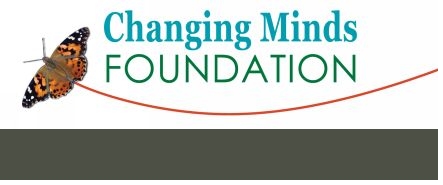
Doctor's Reference Guide (take this to your doctor)
Changing the Minds of Children and Adults with Down syndrome
The Changing Minds Foundation has developed an exciting protocol that enhances cognitive ability in children and adults with Down syndrome. It is based in part on research by Prof. Craig Garner and colleagues at Stanford University.
For more information visit: www.changingmindsfoundation.org
- Dr. Craig Garner and colleagues at Stanford University, in a yearlong study using a mouse model of Down syndrome, found that the brain rewired itself using its innate ability to change and adapt, if it was rebalanced using the right medications.
- The chronic use of safe and well known medications allowed the brain to function and therefore develop.
- The amazing piece of the puzzle is that the brain restores itself. It is proper function that allows proper form to be created. This has been the hope of many and now a solution may be here.
Promising Preliminary Results of Clinical Study with Children and teenagers with Down syndrome
- 4 out of 4 study participants had a significant increase in non-verbal IQ
- An increase in non-verbal IQ in the participants ranged from 7 to 15.7%.
- All improved in academics in 6 months and a 6 month advancement was achieved
- These types of results are unprecedented
In the last 10 years an accurate mouse model, Ts65Dn, has been developed which revealed answers about Down syndrome’s neurological disorders. It has been found that there are therapeutic agents that can assist in rewiring the brain using the brains own ability to adapt and change.
4 Neurological Problems in Down syndrome and Possibly the Protocol to Fix It!
1.
Problem: Increase of GABA receptor (over-inhibition): the MAJOR cause of cognitive impairment in mouse models of Down syndrome is over inhibition by the GABA receptor system. In 2003, Stanford University discovered that the, GABA receptor, an inhibitor, was on continuously in individuals with Down syndrome. The result was- it did not allow the nerves in the memory area of the brain to fire. To get the proper level of GABA, a GABA antagonist was used to turn it down. Ginkgo Biloba is a GABA antagonist which has been used for over 4000 years.
Solution: Decrease the over-inhibition by using a GABA antagonist. Bilobalide, a component of Ginkgo Biloba extract, has reversed the cognitive impairment in the mouse model and in the initial clinical studies.
- Ginkgo Biloba is an herb that is one of the most clinically tested and recommended phytomedicines in the US. More than 120 clinical trials have been conducted documenting safety and efficacy in various cardiovascular and cognitive functions.
- It is widely available in health food stores, grocery stores, and online. The formula is standardized so that the concentration of each component is the same in all brands.
- The dosage of Ginko Biloba is at least 2.5mg/lb per day preferably all at once and at the same time every day.
2.
Problem: Loss of neurons in the hippocampus: Down syndrome loses 50% of their neuronal structure by 6 months old. This is an insurmountable problem. The University Of Maryland School Of Medicine treated Down syndrome mice with prozac for 24 days (2006). It increased neurogenesis (the formation of new nerves) to a normal level. This is like increasing the hardware on your computer. It allows you to run more complicated software. In fetuses with Down syndrome, neurons fail to show normal dendritic development, yielding a "tree in winter" appearance. This developmental failure is thought to result in mental retardation.
Solution: In 2006, a study with the Ts65Dn mouse model showed neurogenesis using a well known pharmaceutical agent – Prozac. It doubled the neuron count in 3 weeks in the mouse model.
- Prozac is a pharmaceutical drug that was approved for the treatment of depression in 1987 in the US. It works by stimulating the growth of new neurons or nerves in the hippocampus, the memory area of the brain. The indications for Prozac are anxiety, depression, obsessive/compulsive disorder and bulimia.
- Prozac received FDA Pediatric approval in 2003 for ages 6yrs and older. Since 1986 it has been approved and marketed in more than 90 countries and used in more than 54 million people worldwide.
- Side effects associated with Prozac in children and adolescents were similar to those experienced by adults included; nausea, tiredness, nervousness, dizziness, and difficulty concentrating.
- Please refer to the package insert for dosing information on Prozac.
Ø It seems clinically logical that the Down syndrome population could benefit from this drug because of the loss of neurons that occurs early and on an ongoing basis. As well as, the common symptoms of anxiety and OCD early in life and depression later in life.
3.
Problem: Early onset Alzheimer/Disease Inflammation: How do you lower the inflammatory markers safely and for a lifetime in a syndrome that represents an Alzheimer model?
Solution: Decrease inflammation by using fatty acids such as Phosphatidyl Choline (PC), Sunflower oil and Flaxseed oil. When used in the correct ratios they provide a safe, effective way to lower C - reactive protein, Interleukin 1 and Tumor Necrosis Factor which can contribute to inflammatory processes in the brain.
- Phosphatidyl Choline (PC) is a phospholipid that makes up 50% of the cell membrane. The membrane is the lining of every nerve cell that carries our signals. We are trying to heal the brain by growing new neurons and allowing them to fire. Giving PC is like bringing the bricks to the construction site when building a house.
- Phosphatidyl Choline (PC) is a safe and essential fatty acid that provides “fluidity” to the cell membrane, as the membrane is crucial to the majority of cellular activities especially in neurons. It has been used worldwide in over 40,000 studies and has shown to protect the nerves from damage.
- Phosphatidyl Choline (PC) is available in soft-gel capsules or liquid. The
stated dose on product label is 2 soft-gels or 1-2 tsp daily.
- Sunflower oil and Flaxseed oil are well known for reducing inflammation by triggering a ‘restoration pathway’. The dosage is one tablespoon daily.
Ø The brain is 50% dry weight of PC and it makes sense to supply it the raw materials so we can rewire the brain.
4.
Problem: Lack of Concentration: After the brain begins to rewire itself using its ability to adapt and change, it became apparent that the test Down syndrome population needed more help.
Solution: Increase attention by using a mild stimulate called Focalin XR that was shown to enhance attention and learning.
- Focalin XR is a cleaned up version of Ritalin and has fewer side effects.
- Please refer to the package insert for dosing information on Focalin XR
For more information visit: www.changingmindsfoundation.org


















